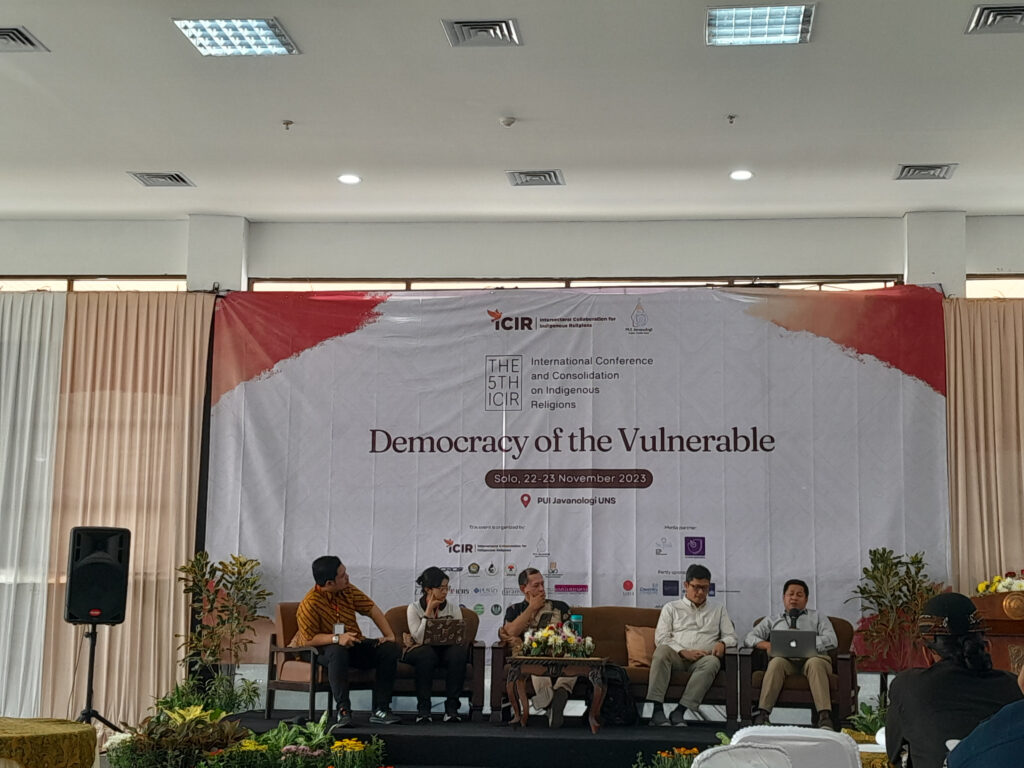In recent years, Indonesia has experienced significant developments related to laws and regulations, including in the realm of criminal law. In this context, it is important to study and analyze changes or developments related to the two main human rights, namely freedom of expression and freedom of religion or belief.
In recent years, there have been dynamic changes in regulations relating to freedom of expression in Indonesia. Some amendments and new laws reflect the spirit of democratization, but also raise challenges regarding the limits placed on this right.
On the one hand, these changes provide greater space for the public to voice opinions and criticize the government. On the other hand, strict regulations are still needed to protect moral values, national security and other individual rights. However, clarity regarding these limitations needs to be made clear so as not to create ambiguity that could be misused by the authorities.
"There were 72 cases related to KHUP in the period 2010 to 2021. These cases consisted of 61 cases of insulting power and 11 other cases of hate speech related to identity," explained Mohammad Iqbal Ahnaf, from CRCS UGM.
Recent developments in the regulation of freedom of religion or belief in Indonesia reflect a commitment to protecting human rights. Freedom of religion or belief is guaranteed by the constitution, and there are efforts to integrate pluralist values into the legal framework.
However, several issues that are still emerging include the protection of religious minorities and handling cases of religious intolerance. Punishments for perpetrators of acts of intolerance need to be tightened, and the justice system must be able to provide justice regardless of religion or particular belief.
“Freedom of expression is one of the things most affected by the manipulative legal political context that is dominant today. The Criminal Code opens up space for more systematic manipulative potential. "We shouldn't easily get caught up in the political narrative of hate speech, because we don't want a repeat of what happened in 2014," said Herlambang P. Wiratman, Law Lecturer at UGM.
In implementing new criminal laws related to freedom of expression and freedom of religion, the main challenge involves fair and proportional enforcement. There needs to be a balance between protecting society from security threats and ensuring human rights are maintained.
“It is important to distinguish what constitutes an expression of criticism of the status quo of power and what constitutes incitement to hatred. "How can the hate speech article, which aims to protect vulnerable groups, actually result in restrictions on their rights," added Johanna Poerba, Institute for Criminal Justice Reform.
In addition, educating the public about their rights and obligations in this context is also key. Increasing awareness of freedom and shared responsibility can help prevent abuse and increase understanding of pluralism and tolerance.
“Social media actually gives rewards to people who cause crowd conflicts. The algorithm is actually ordinary, but it is framed to be something very scary. "Even though it is often used," explained Leonard C. Epafras from ICRS.
The latest developments in criminal law in Indonesia reflect efforts to advance democracy and protect human rights, including freedom of expression and freedom of religion or belief. However, the challenges of implementing and enforcing fair laws remain the focus of attention.
It is important to continue to encourage open dialogue and discussion between government, civil society and other stakeholders to ensure that legal developments are in line with the values of democracy, pluralism and human rights. In this way, Indonesia can build a strong legal foundation to support an inclusive and just society.


